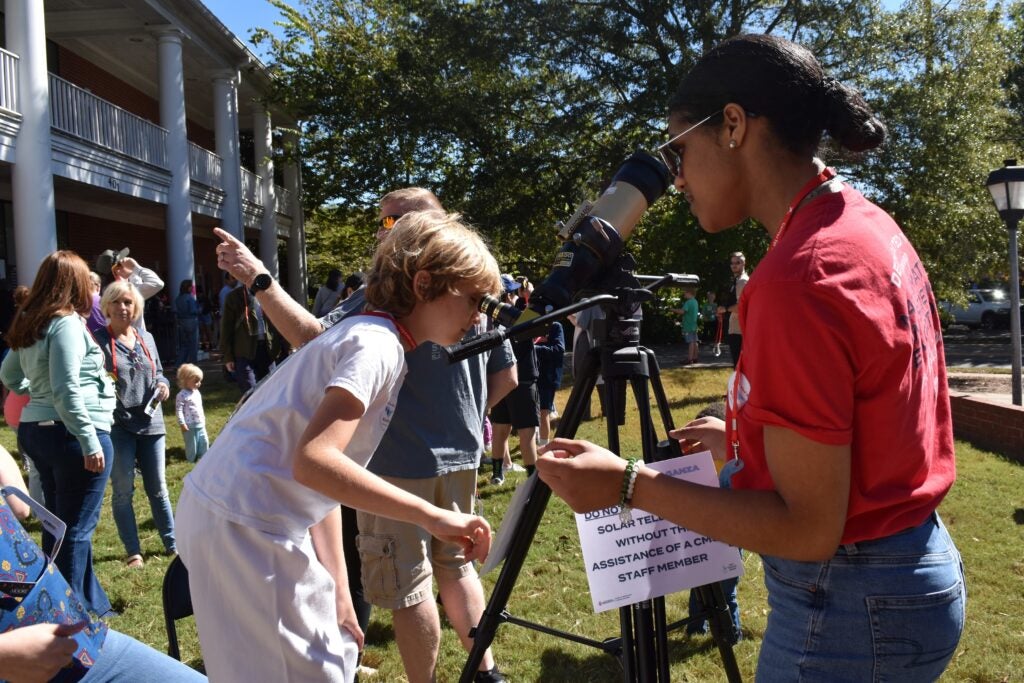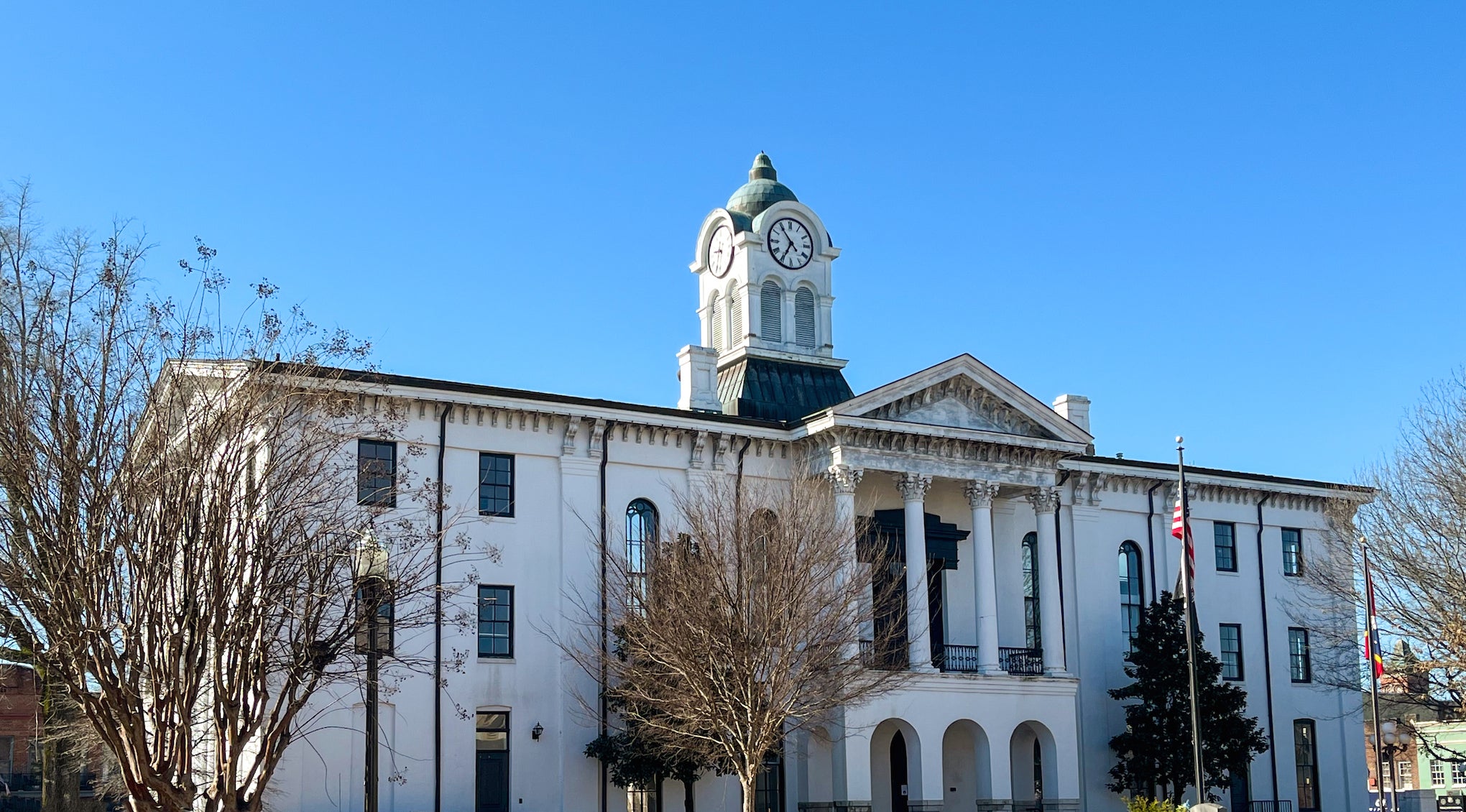Pre-eclipse event set for April 6 at library
Published 7:00 am Wednesday, March 27, 2024

- The CMSE held a viewing event at the Oxford library during the partial eclipse in October 2023. A similar event will be held at the library on April 6. (Contributed)
To help Oxford residents of all ages get ready for the solar eclipse on April 8, the Center for Mathematics and Science Education at the University of Mississippi and the Lafayette County and Oxford Public Library are teaming up to host an event two days before the actual eclipse.
Since the solar eclipse will occur on a Monday, the CMSE will hold a come-and-go event on Saturday, April 6, from 10 a.m. to 2 p.m. at the library.
The CMSE held a similar event at the library during the October 2023 partial eclipse event.
At the “Eclipse Extravaganza [Preview],” attendees will receive information about the eclipse, with specific information on what Oxford residents can expect to see during the total eclipse. Everyone will receive free solar-viewing glasses, while supplies last, that must be worn for the entire duration of the eclipse. Also while supplies last, guests will receive UV-reactive beads.
The CMSE will have its solar telescope on hand that will allow viewers to see some pretty cool stuff, even though the main event is two days later.
“People will still be able to view sunspots and solar flares through the solar telescope,” said Christian Clark, a graduate research fellow at the CMSE. “The telescope is made specifically for solar viewing, unlike a traditional telescope. Additional information about what causes sunspots and solar flares will also be shared.”
CMSE Mobile Planetarium will host shows throughout the event focused on how eclipses occur and how often they occur. People within the planetarium will also be able to see a simulation of the eclipse from outer space. In the planetarium, the facilitator can adjust the time, date and location, which allows seeing what the eclipse will look like from Oxford and from outer space looking back at Earth.
There will be other educational activities and, of course, folks can also check out books and resources related to eclipses and outer space at the library.
According to Clark, solar eclipses happen roughly twice per year worldwide, but not all are “total” eclipses. A total eclipse happens when the moon completely blocks all sunlight, leaving a “path of totality.”
Oxford is not in the path of totality on April 8, like some places in Texas, Arkansas and Missouri are, but the area will experience 0.947 magnitude. “This means that approximately 94 percent of the sun’s diameter will be covered by the moon for those viewing the partial eclipse in Oxford; it will get quite dim,” Clark said. “This eclipse is special because Oxford citizens have the opportunity to celebrate the eclipse here or travel to the path of totality relatively easily.”
The next total eclipse to sweep across the country – and even come close to Oxford – will not occur until 2045.
The Center for Mathematics and Science Education strives to improve mathematics and science education throughout Mississippi through STEM experiences for students in grades K-12, as well as professional learning opportunities for math and science teachers.
“Our hope is that providing opportunities like Eclipse Extravaganza and many other experiences will inspire people of all ages,” Clark said.





